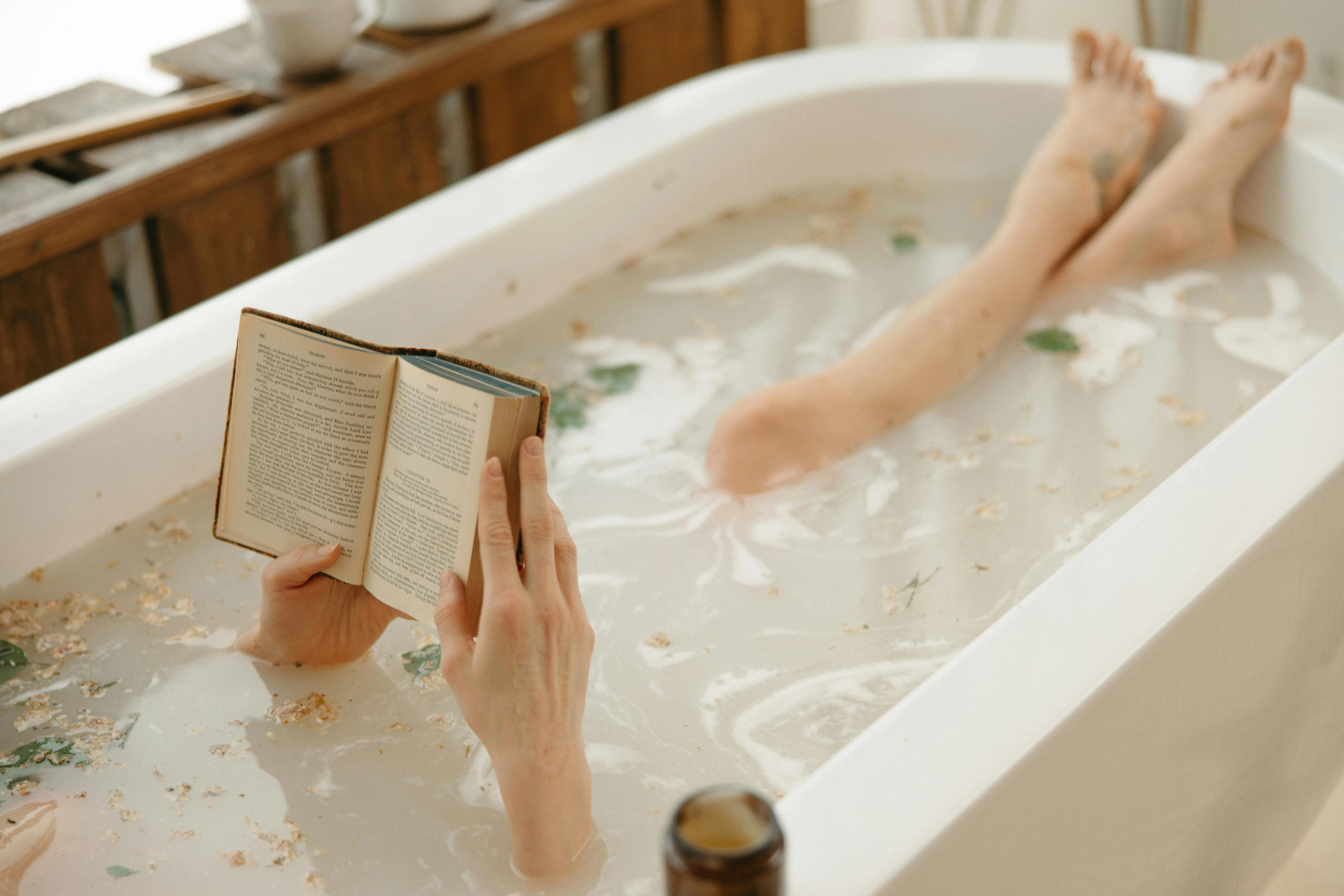 |
| Photo/Pexels |
Bathing is an ancient practice, from the public baths of ancient Rome to the Japanese onsen culture, bathing has always been considered a way to relax and unwind. However, the benefits of bathing go far beyond this. It not only helps us relax but also aids in improving physical health, enhancing mental well-being, and even promoting beautiful skin. In this article, we will delve into the various benefits of bathing and share some useful tips so you can enjoy the pleasures of a bath at home.
1. The History and Cultural Background of Bathing
The history of bathing dates back thousands of years. The public baths of ancient Rome (Thermae) were places for socializing and relaxation, becoming an integral part of daily life. Japanese onsen culture is renowned for its therapeutic effects and relaxing benefits, and it is still beloved by the Japanese people today.
2. The Health Benefits of Bathing
Improving Circulation
Bathing can enhance blood circulation. When you soak in warm water, your blood vessels expand, making blood flow smoother, helping to deliver oxygen and nutrients to various parts of the body, and aiding in the removal of waste and toxins.
Relieving Muscle Pain
Whether it’s post-workout muscle soreness or daily fatigue from work, a bath can effectively alleviate it. Warm water helps relax tense muscles, reducing pain and discomfort. Additionally, adding magnesium-rich bath salts, such as Epsom salt, can further relieve muscle cramps and soreness.
Enhancing Sleep Quality
Bathing can also improve sleep quality. Research shows that taking a hot bath before bed can help lower body temperature, aiding in the body’s transition to sleep mode. The warmth of the water also helps relax the body and mind, reducing insomnia and nighttime awakenings.
3. The Mental Health Benefits of Bathing
Reducing Stress and Anxiety
Modern life is full of stress, and bathing is an excellent way to relax. Warm water can help the body relax and calm the mind. Complementing it with some essential oils, such as lavender or chamomile, can further alleviate anxiety and stress.
Boosting Mood and Mental State
Bathing allows you to let go of worries and take some time for yourself, helping to boost overall mood and mental state. Especially when you feel tired or down, a bath can give you a psychological uplift.
4. The Benefits of Bathing for the Skin
Deep Cleansing and Exfoliation
Bathing can help deeply cleanse the skin, open pores, and expel dirt and toxins from the body. Adding some natural exfoliating products, such as sea salt or sugar, can remove dead skin cells, making the skin smoother and more refined.
Hydration and Anti-Aging
Bathing also helps hydrate the skin. Warm water opens the skin’s pores, allowing moisturizers to penetrate better. Using bath salts or essential oils rich in natural oils, such as coconut oil or olive oil, can further moisturize the skin, combating dryness and aging.
5. Different Methods and Techniques for Bathing
Hot Water Bath
A hot water bath is the most common method. Appropriate water temperature can relax muscles and promote blood circulation. It is recommended to keep the water temperature at 38-40 degrees Celsius and control the duration to 20-30 minutes to avoid excessive fatigue and dehydration.
Cold Water Bath
Although less common, a cold water bath has its unique benefits. It can promote blood circulation, strengthen the immune system, and help improve the body’s adaptability. It is advisable to keep the cold water bath short and gradually increase the duration during the adaptation process.
Aromatherapy Bath
Aromatherapy bathing combines the benefits of aromatherapy and bathing. Choosing suitable essential oils, such as lavender, rosemary, or lemongrass, can achieve relaxation, stimulation, or mood enhancement. Adding a few drops of essential oil to the bathtub allows the aroma to permeate the entire bathroom, providing a full sensory experience.
Therapeutic Bath
Therapeutic bathing focuses on using different bath salts, herbs, or other natural ingredients to achieve specific therapeutic effects. For example, adding magnesium-rich Epsom salt can relieve muscle spasms, while adding aloe vera gel helps soothe and repair the skin.
6. Safety Precautions for Bathing
While bathing has many benefits, some safety precautions are necessary. First, avoid water that is too hot to prevent burns or dizziness. Second, avoid prolonged bathing to prevent skin dryness or dehydration. Finally, pregnant women, the elderly, or those with heart disease or other health conditions should consult a doctor before deciding whether to bathe.
7. Creating the Perfect Bath Environment at Home
To create an ideal bathing environment at home, consider the following points:
- Choose the Right Bathtub: The size and shape of the bathtub should suit your body type to ensure comfort during the bath.
- Adjust the Bathroom Lighting: Soft lighting can create a relaxing atmosphere. Use dimmable lights or light candles to enhance the ambiance.
- Prepare Aromatherapy and Music: Choose your favorite essential oils and music to fully relax your senses.
- Use Bath Salts and Essential Oils: Choose suitable bath salts and essential oils according to your needs to enhance the bathing experience.
- Ensure a Clean and Comfortable Bathroom Environment: Keep the bathroom clean, avoiding clutter to enhance your bathing mood.
8. Conclusion
Bathing is not just a way to relax; it is a lifestyle habit that enhances health and well-being. Whether it’s improving physical health, boosting mental state, or nourishing the skin, bathing has undeniable benefits. We hope this article helps you understand the multiple benefits of bathing and inspires you to incorporate this wonderful habit into your daily life, creating a time of relaxation and joy for yourself.





0 Comments